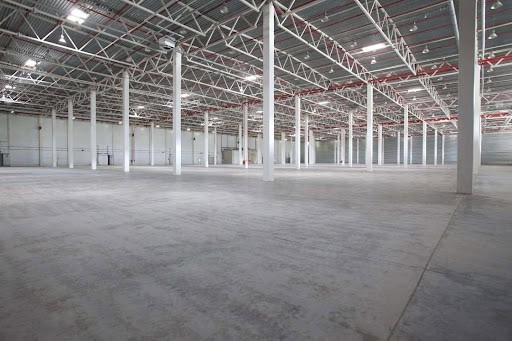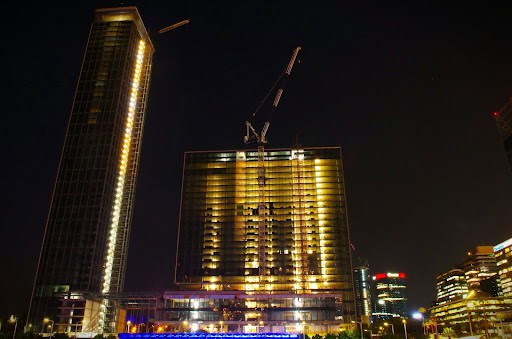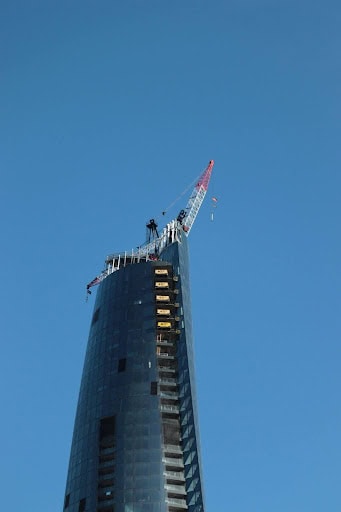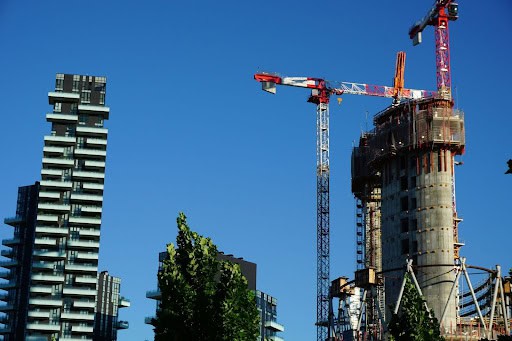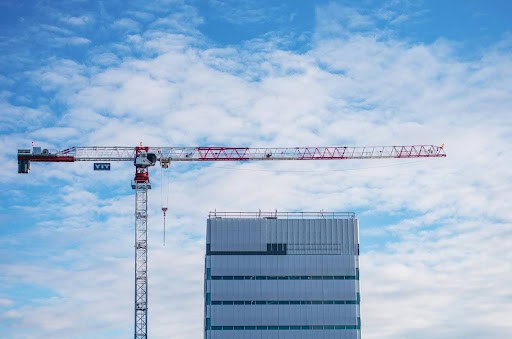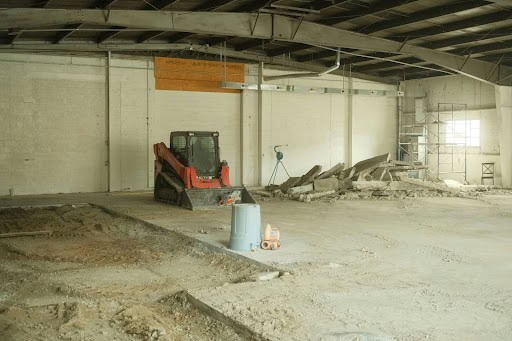
Getting a commercial build off the ground in Houston does feel like a lot. You’re chasing quotes, filling out forms, trying to line everything up, and still the numbers seem to change around on you. And then there’s the search for the commercial contractor, which ends up sitting at the center of it all.
You want someone who actually knows the local codes, can keep trades moving, and isn’t going to sneak in hidden costs or drag things out.
The problem is, you hear plenty of stories about budgets blowing out or teams just vanishing halfway through, so if you’re feeling a bit uneasy when you’re planning, it’s understandable.
Read on for a clearer path, so you know what to ask before signing, and how to tell which ones of the commercial general contractors in Houston are solid. You’ll also learn the main steps that make sure you stay in control rather than just hoping it all works out.
What Exactly Does a Commercial Contractor Do on a Houston Build?
A commercial contractor in Houston steers the whole commercial building process from the first idea to the day you’re actually walking into a finished space. It starts off pretty early, in those planning chats where you’re throwing around what you need, how much time you have, and what the budget might realistically look like.
Then there’s all the Houston city requirements (planning & zoning approvals, permit reviews, impact fee assessments), the paperwork that can slow things to a crawl if someone’s not handling it right.
Commercial general contractors are usually managing the budget at the same time, keeping checks on costs, talking to suppliers, trying to stop those “oh by the way” surprises in the later stages of the project.
Once the build actually gets going, they’re on site to keep trades in line, checking quality, and to make sure it’s safe. Inspectors come in, adjustments get made, and it all moves forward.
And all that is done so by the end, you have a place that works, that’s signed off, and you’re not left wondering what box didn’t get ticked.
Why Is a Local Houston Commercial General Contractor Essential?
You have all these code interpretations in Houston, right, and half of them change depending on what side of the city you’re standing on. Floodplain rules over here, fire safety rules change over there, accessibility that changes from location to location. It can get confusing for anyone who isn’t from around here.
That’s why having a local commercial contractor is super important. They’re not guessing their way through the permit process; they’ve already sat through those meetings, filled out the right paperwork, and know which officials are picky about what.
And the connections, that’s big too. A local’s got people. They know the vendors, the teams that don’t vanish halfway through a job, and the city offices that actually get things signed off.
It means when any issues pop up (zoning shifting or an inspection dragging on, for example), they don’t panic; they just make a call and keep things moving. That know-how sure will save your time, money, and definitely your sanity.
A good place to start your search process is by a Google search of commercial general contractors near me.
How Is the Pre-Construction Phase Planned and Managed?
So the pre-construction part is really where the whole thing starts to feel real. You’re not placing concrete yet, but your commercial contractor’s already steering the project.
First thing they’ll do is walk the site, figure out the cards you’ve been dealt. Is there decent access? Does the drainage look dodgy? Any old pipes or cables hiding under there? All that stuff shapes the plan before a shovel even touches dirt.
Then you have the feasibility side: traffic & zoning checks, utilities, and environmental considerations. Houston can be a tad difficult with that; flood zones, clay soil that swells up, all those “only in Houston” issues.
Soil testing is done at this point, as it’s better to know if the ground’s going to move on you now rather than six months into a build.
While all that’s moving along, numbers are running too. Costing out materials, labor, leaving room for the curveballs. Everyone’s doing their part (architects, engineers, the owner), just hashing it out so when it’s go time, nothing’s hanging in the air. It’s this groundwork that saves you grief later.
These are all required steps of the commercial architectural process that is a critical pre-construction process step.
How Does a Commercial Contractor Create a Detailed Project Schedule?
Scheduling a commercial build is the glue holding the whole job together. A good commercial contractor (Marwood Construction, for example) doesn’t wing it; they’ll slice the project into super actionable and realistic steps you can actually understand, like first you clear the site, place the foundation and then framing, then all the guts like plumbing and electrical, and later the finishes. Each step is basically leaning on the one before it, so if one slips, the whole thing is off the rails.
The gear and materials can also really trip you up. Some things are easier to get, others take forever (especially if you’ve ordered anything custom). If no one’s paying attention, you’ll have tradespeople standing around burning money because the windows aren’t in yet.
A solid commercial contractor’s already thought through all that, and changes things around so the work keeps flowing.
And the money side? Huge. The loans aren’t cheap. Every week you shave off is less interest you’re paying to the bank.
What Are the Core Responsibilities During Active Construction?
When the build actually starts off, that’s when the commercial builders really takes over the site. It’s kind of like they’re the air traffic controller, making sure nobody crashes into each other and things keep moving.
They’re out there every day, walking it, checking teams aren’t cutting corners, keeping safety tight because OSHA inspectors don’t mess around. And the managing and dealing with the subs, that’s constant. If trades start stumbling over each other, you lose time, and time’s money.
Key responsibilities usually shake out like this:
- Structural work: Concrete foundation pours, framing / steel columns & beams making sure load-bearing pieces can actually carry the load.
- MEP: Mechanical, plumbing and electrical rough-ins not colliding,
- Roofing Systems & Ext Cladding; Placing exterior appearance and weatherization
- Interior and exterior finishes: The polish at the end, floors, paint, and the little details people notice most.
- Site Improvements; Parking structure, underground utility lines, landscaping
Meanwhile, they’re tracking progress, talking to inspectors, fixing issues straight away. Owners get updates, reports, and the whole picture, so everyone’s on the same page.
How Are Subcontractors and Vendors Selected and Supervised?
Selecting and supervising subcontractors… yes, that’s the thing, probably the most critical aspect a commercial contractor handles in a Houston build.
Starts with soliciting bids, electricians, plumbers, HVAC teams, and concrete guys; basically, all the trades. Proposals stacked up. Some look solid, others just fluff. The commercial contractor’s there, sifting, thinking, ‘Hmmm, did they actually finish that last job on time or just say they did?’
Checking insurance, licenses, and financials, too… can’t skip that.
Then comes the contracts. Scope written out, prices locked, timelines sketched, and warranty documents too. Not fun reading, but if it’s not sorted here, the whole job goes sideways later. Payments are tied to milestones, so no one’s cashing out before they show real work. Keeps folks honest.
Supervision doesn’t stop after the papers. It’s daily. Contractor walking the site, looking at workmanship, feeling the materials, squinting at details.
Inspectors from the city conduct regular checks to verify structure, MEP, and life safety systems. If they flag something…back it goes for fixing.
How Does a Commercial Contractor Control Project Finances?
A commercial contractor also has to keep the money side steady. Starts with a budget; materials, labor, permits, machines, and even the just-in-case contingencies.
Modern systems help in tracking costs as they happen. The contractor looks at forecasts, then actuals. Reports go to the owner, sometimes good news, sometimes not. And that guides the next call.
And loans, can’t forget those. Most projects have them. The contractor has to work with the lender, meeting draw schedules, proving milestones are real before any money is released.
Cash flow’s the lifeline. Vendors need to be paid, and teams are waiting as well. If payments stall, the whole thing jams. So they manage, keeping credit solid, the job moving. Profit doesn’t survive without discipline. Even then… surprises do happen (and it’s part of the job even when working with the most experienced commercial contractors).
How Is Supply-Chain and Materials Procurement Managed?
A commercial contractor in Houston also has to manage every nut, bolt, shipment, and timing window. First, they’ll find suppliers who aren’t just cheap but actually tick the code compliance boxes. Certifications are checked before a single order goes out. Locking in quantities and dates, so nothing gets messy down the track, is also their responsibility.
Then you have lead times, which are always moving targets. Specialty items can disrupt a schedule if they fall behind. The contractor relies on vendors, so the right equipment arrives when teams are ready.
Storage space? No one wants piles of unused steel eating up room. Backup plans run in the background, with second suppliers lined up and swap-out options pre-cleared (that includes freight, transport, live inventory feeds).
How Does a Contractor Maintain Communication and Documentation?
A commercial contractor keeps everyone (owners, architects, engineers, subs) on the same page. Weekly sit-downs where progress is hashed out, problems tabled, and next steps nailed down.
There’s also the daily drip through apps like Procore or Buildertrend, dashboards showing schedules, inspections, and costs. Change orders are logged right away, notes attached, budgets shifted, timelines stretched or tightened.
Permits, inspection reports, even stray emails all get put into a single cloud folder, versions tracked so no one’s working off yesterday’s plan.
If someone questions the scope or pricing, or if a wall was built to spec, the contractor has receipts: signed docs, meeting minutes, everything in black and white.
What Safety Protocols and Quality Controls Are Required?
There’s this checklist of protections that has to be spelled out. Worker safety, job quality, compliance. It’s not optional, as without it, the worksite turns messy fast.
OSHA Compliance and Site-Specific Safety Plans
A good commercial contractor in Houston sits down with paperwork before the first hammer swings. A detailed plan gets written. Hazards are listed. What gear is required? How equipment is handled. Who does what in the event of an accident?
Every person on site has to sit through orientation, and then more training later, because things change. Records pile up. Records of training, incident reports, and equipment checks are kept on file for inspections or audits. So, if inspectors show up, you have proof sitting right there.
Dedicated On-Site Safety Oversight
Bigger jobs pull in a full-time safety officer. Someone whose only job is walking the site, looking at scaffolds, checking harnesses, and watching the forecast. Subcontractors can’t wiggle out of it either.
Everyone plays by OSHA and the City of Houston’s book. If a risk pops up, the officer can shut it all down. Painful for schedules, yes, but less painful than an accident for sure.
Regular Inspections and Documentation
Internal inspections become these constant markers at key milestones (foundation pours, steel frames, plumbing, and wires before the walls close). Photos are snapped, notes are logged, and timestamps are locked in. It all feeds into construction software, like a living diary of the site. That way, it’s transparent and hard to argue with later, really.
Third-Party Quality Audits
Independent engineers or testing agencies are brought in for structural tests, material sampling, and load analysis to confirm that concrete strength, steel connections, and fireproofing meet design specifications. Results are documented and shared with the project team to catch any issues before city inspectors arrive.
City of Houston & County Inspections
You’ll need permits and inspections for electrical, plumbing, mechanical, and structural work (required by the City of Houston). Contractors coordinate directly with city inspectors and schedule visits around critical phases so momentum isn’t lost.
Continuous Improvement and Reporting
Weekly safety meetings roll on. Reports shared instantly. Near misses aren’t buried; they’re folded back into the plan. Each fine-tuning tightens control a little more. That’s how projects stay safe, avoid disputes, and keep Houston regulators satisfied.
How Are Disputes or Unexpected Issues Resolved?
A big part of a Commercial contractor’s job is keeping everyone out of fights that can stall a site.
How? It starts with the paperwork. Contracts that actually spell things out (scope, payment terms, how change orders get handled). There can’t be any gray areas left, no “I thought you meant…” arguments later.
Every agreement also lays down a game plan for when things do go sideways. Escalation steps, timelines, and who calls the shots first. Usually, the project manager steps in, and only if that doesn’t work does it go up the chain to the owner. Keeps decisions quick instead of dragging.
When it’s bigger issues, like design conflicts, weather delays, or subcontractors not seeing eye-to-eye, there’s already a path mapped out.
Mediation or arbitration clauses bring in neutral third parties if nobody can agree.
And the paper trail (daily reports, meeting notes with signatures, and cost logs) matters. All that detail builds a safety net. If anyone questions a move, there’s evidence to back it.
That’s how a solid commercial contractor like Marwood Construction keeps the project moving, protects the budget, and makes sure everything lines up with best practices..
What Should You Ask Before Hiring a Commercial Contractor in Houston?
Before picking a commercial contractor in Houston, slow down and run through a checklist. Saves you from a lot of delays, blown budgets, or paperwork issues. The points below address issues that often only pops up once work’s already started.
Licensing and Registration
First thing: paperwork. Make sure the contractor actually holds a current Texas license and is registered with the City of Houston. Don’t just take their word for it, either. Check their standing with the Texas Department of Licensing and Regulation. Any complaints or violations? Better to know now than when the inspector shows up.
Bonding and Insurance
Ask for proof of performance bonding and general liability insurance. Workers’ comp certificates, too. Look at the policy limits. Do they actually cover a project of your size, or just a small job?
Experience and References
Ask for a list of commercial projects they’ve wrapped in the last five years. Call past clients. Ask about schedules, costs, and how the contractor handled curveballs (weather, design changes, sub issues). That’s where the real story comes out.
Financial Stability
Request audited financial statements or a letter of good standing from their bank. A contractor with shaky cash flow can stall your project fast. A strong balance sheet means fewer “surprise” stoppages halfway through.
Key Questions to Include
When you’re sitting across the table, keep these questions in your back pocket:
- What’s your process for handling permits and inspections with the City of Houston?
- Which subcontractors or suppliers do you use regularly, and how do you vet them?
- How do you track budget and schedule changes in real time?
- Can you give me a detailed project timeline with clear milestones?
- Who’s the day-to-day site supervisor, and how often will I get updates?
Running through this list gives you a contractor who’s solid on paper and in practice; someone who can handle Houston’s building standards without putting your investment at risk.
What Are the Typical Costs for Houston Commercial Projects?
Commercial general contracting in Houston …costs swing hard depending on what you’re building, where you’re building, and how fancy the finishes get.
A simple single-story? You’re looking at roughly $320 to $460 a square foot. Interior build-outs run lighter, $60 to $250. But high-rise offices? $460 to $1,045. Medical builds climb just as high.
And that’s before soil tests, custom interiors, or mechanical systems add up. Truth is, you’ll want a buffer. Early budgeting and contingencies will definitely keep you out of trouble.
FAQs: Commercial Contractors in Houston
How long does a typical commercial construction project take?
A small retail fit-out might wrap in six months if the weather stays nice, while a mid-size office could stretch closer to a year. Mixed-use projects? Those drag on longer, 12 to 20 months easy. Rainstorms, sudden design tweaks, inspectors running late, all of it stretches time. That’s why contractors obsess over milestone tracking in commercial construction, so delays don’t snowball.
Do commercial contractors provide design-build services?
Good ones like Marwood Construction do. Design-build rolls architecture, engineering, and the actual building into a single contract. One team, fewer arguments. Permits slide through faster, change orders aren’t a nightmare, costs stay steadier than the old design–bid–build way.
Can a contractor manage all city permits and inspections?
Yes, that’s part of the job. They deal with zoning, permits, and inspector visits. Many already know the reviewers, which saves re-submittals and keeps the project inching forward.
What factors most affect total project cost?
Square footage, complexity, finish levels, soil conditions, and utility hookups. Plus market swings in steel, concrete, and labor. That’s why budgets need padding for the unexpected.
What warranties or guarantees are standard in Houston commercial builds?
Usually one year on workmanship. Manufacturer warranties cover roofing, HVAC, and electrical are 2 year periods and structural warranty is 6 years in Texas. Premium warranties, if you’re working with Marwood Construction.
Wrapping Up: Commercial Contractor in Houston
It’s your money, your name, your future growth, all tied up in concrete and steel. One shot to get it right.
The contractor you bring in decides how it plays out. Solid foundation or a mess of delays and excuses.
That’s why you don’t roll the dice on this one. You want steady hands. Precision. Accountability. A track record that actually means something.
That’s what we bring to our Houston clients every single time. Contact Marwood Construction now.







